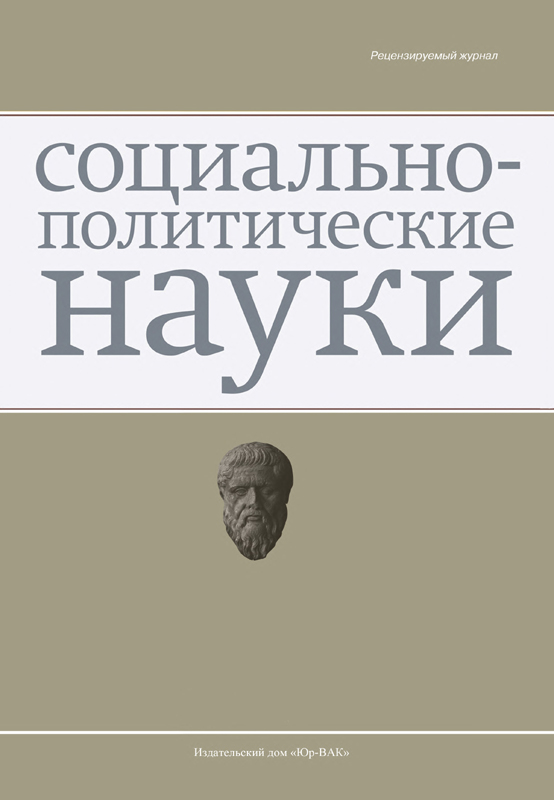The Peculiarities of Aesthetic Education of Cadets of Higher Educational Organizations of the Ministry of Internal Affairs in the Process of Foreign Language Teaching
- Авторлар: Levitskaya E.Y.1, Akvit V.S.1, Bashlueva N.N.1
-
Мекемелер:
- Moscow Regional Branch of the Moscow University of the Ministry of Internal Affairs of Russia named after V.Ya. Kikot
- Шығарылым: Том 13, № 1 (2023)
- Беттер: 111-118
- Бөлім: Social and Political Philosophy
- URL: https://journals.eco-vector.com/2223-0092/article/view/545881
- DOI: https://doi.org/10.33693/2223-0092-2023-13-1-111-118
- ID: 545881
Дәйексөз келтіру
Аннотация
The purpose of the research is to determine pedagogical approaches to aesthetic education of first-year cadets at foreign language classes/ In this article the necessity of taking into account the peculiarity of first-year cadets’ aesthetic education during scheduled foreign language educational activities is analyzed; both the relevance and importance of aesthetic education as the basis of moral experience and affective culture enrichment and the means of correcting values of a forming personality are grounded. It is stated that examining cadets’ aesthetic preferences let heed cadets’ individual needs scrupulously in the framework of mass foreign language teaching and ensure not only building cadets’ general cultural competences but also foreign language skills promoting professional interaction. The methods of participant observation, questionnaire, qualitative and quantitative analysis are used. They let reveal the main motives for cadets’ learning foreign languages and also array their aesthetic preferences. It is concluded that the culturological approach plays a particularly important role in aesthetic education implementation at foreign language classes.
Толық мәтін
Авторлар туралы
Elizaveta Levitskaya
Moscow Regional Branch of the Moscow University of the Ministry of Internal Affairs of Russia named after V.Ya. Kikot
Email: veta542011@mail.ru
PhD in Pedagogy, associate professor at the Department of Socio-economic and Humanities
Ресей, MoscowViktoria Akvit
Moscow Regional Branch of the Moscow University of the Ministry of Internal Affairs of Russia named after V.Ya. Kikot
Email: akvit.vs@yandex.ru
lecturer at the Department of Socio-economic and Humanities
Ресей, MoscowNatalia Bashlueva
Moscow Regional Branch of the Moscow University of the Ministry of Internal Affairs of Russia named after V.Ya. Kikot
Хат алмасуға жауапты Автор.
Email: bashlueva@mail.ru
PhD in Pedagogy, associate professor at the Department of Socio-economic and Humanities
Ресей, MoscowӘдебиет тізімі
- Federal Statute No. 304-FZ dated of July 31, 2020 “On introduction of amendments to the Federal Law ‘On Education in the Russian Federation” on student upbringing issues’ ”.
- The Russian Federation Government Order dated of 12.11.2020 No. 2945-Р “On approval of the plan of measures and implementation of the strategy of upbringing improvement in the Russian Federation from 2021 up to 2025”.
- Abramova L.Z. Aesthetic culture training of a student in the educational process. PhD Theses. Orenburg, 2006. 23 p.
- Beresnev A.A. Aesthetic education of non-linguistic university students by means of the English language. In: Problems of modern pedagogical education. Simferopol: Crimea State University named after V.I. Vernadskiy, 2021. Pp.46–48.
- Bocharova E.V. Spiritual, moral and aesthetic education perspectives of University youth. In: Socio-economic, political, legal and spiritual regional problems (to the Caucasus Mineral Vody 200th anniversary): Conference proceedings. Pyatigorsk, 2018.
- Grishin A.A. et al. Aesthetic culture of members of the internal bodies of Russia: Training manual. Moscow: Shchit-M, 2006. 288 p.
- Gumboldt V. Language and Culture Philosophy. Moscow: Progress, 1985. 452 p.
- Deryugina I.V. Aesthetic education of non-linguistic university students by means of a foreign (English) language. PhD Theses. Moscow, 2008. 24 с.
- Kagramanyan K.A. Cadet aesthetic education in the process of teaching foreign languages in Russia MIA University. St. Petersburg, 2007. 181 p.
- Larionova M.V. On problem of profession-oriented foreign language teaching of nonlinguistic specialities students. Philosophical Sciences. Issues of theory and practice. 2013. No. 9 (27). Pp. 94–96. (In Rus.)
- Likhachev D.S. Letters on the good and beautiful. Editor-in-chief S.O. Shapiro. Moscow-St. Petersburg: Nauka; Logos, 2006. 267 p.
- Milyuta T.Yu. Peculiarities of aesthetic education of courses of the University of the MIA in the process of leisure. In: Legal, socio-economic, psychological aspects of ensuring national security: V all-Russian with International Participation Conference proceedings. Perm, October 8, 2020. Part 2. Pp. 214–224.
- Lankes G.A. How should we educate the police. The Journal of Criminal Law, Criminology and Police Science. 1971. Vol. 61. No. 4. Pp. 587–592.
- Marsh R.F., Stickler W.H. Curriculum for law enforcement personnel. The Journal of Criminal Law, Criminology and Police Science. 1972. Vol. 63. No. 2, by Northwestern University School Law. Pp. 300–303.
- Mirich J.J. The qualified policeman – the backbone of society. The Journal of Criminal Law and Criminology. 1959. Vol. 50. Issue 3. Art. 19. Pp. 315–317.
- Sapir E. The status of linguistics as a science. Language. 1929. Vol. 5. No. 4. Published by: Linguistic Society of America. Pp. 207–214.
Қосымша файлдар









